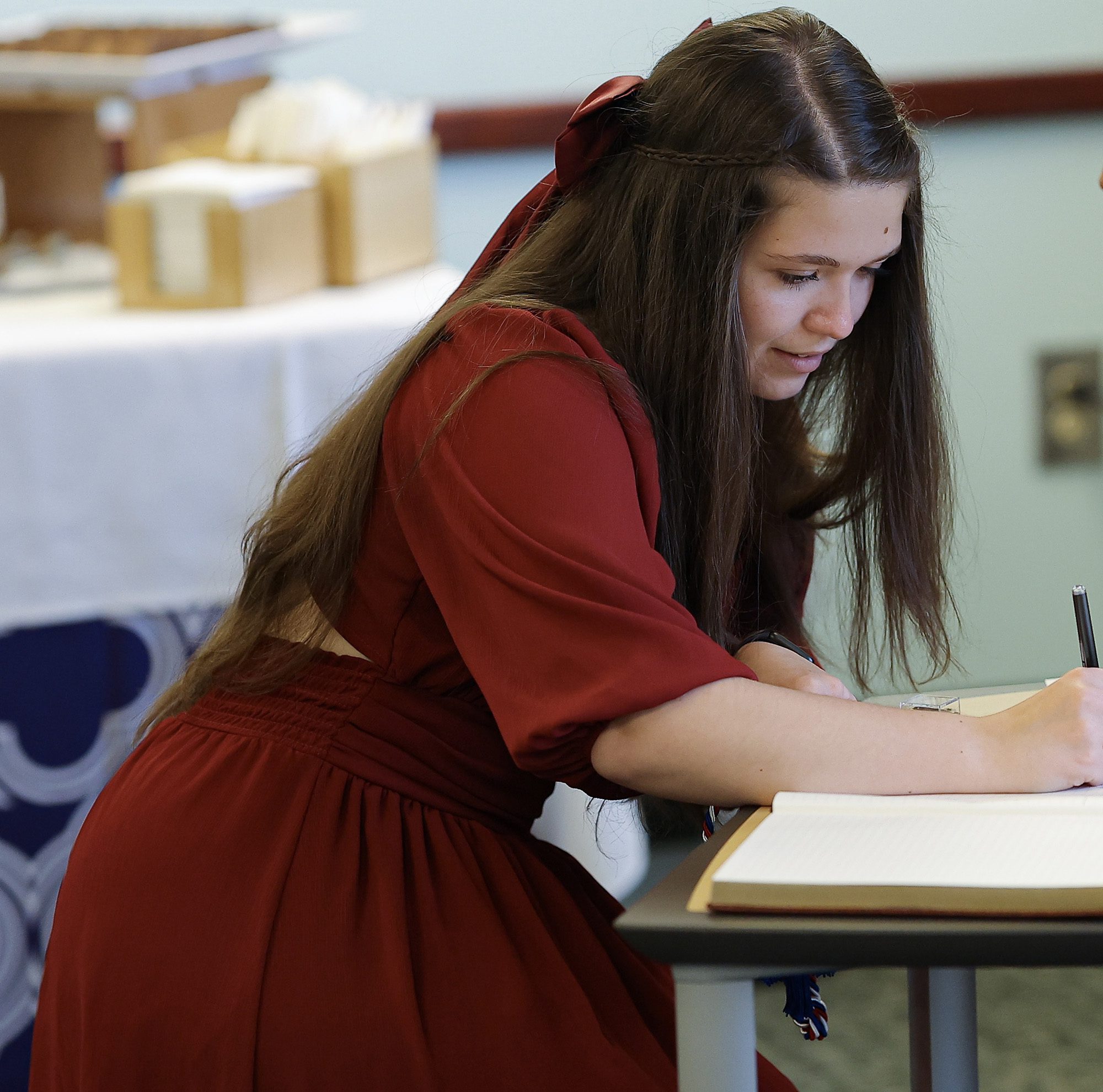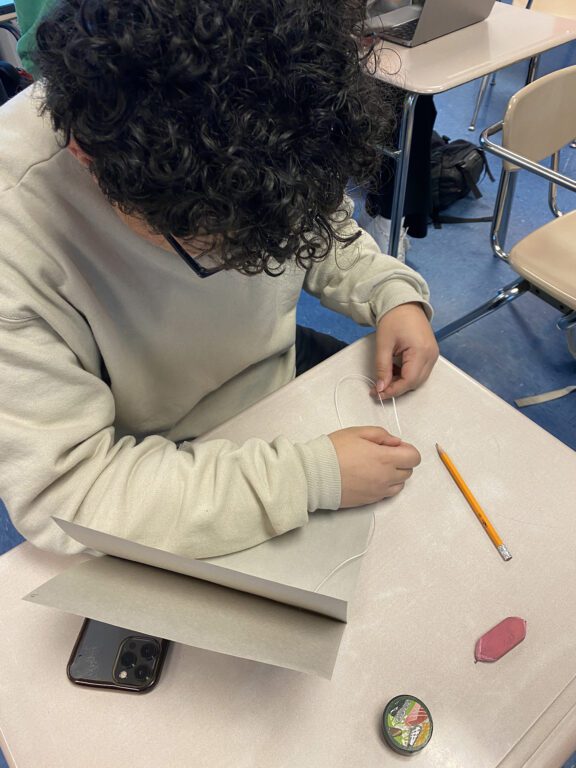Student brings lit to life with Romantic-era bookmaking technique

English major Sophia Anthony ’24 spent Fall 2022 on a study away visit to the British Isles. While there, she and her classmates spent two weeks with the Wordsworth Grasmere trust in Grasmere, a village in the center of England’s Lake District. The trust is dedicated to preserving the legacy and work of William Wordsworth, including maintaining Dove Cottage, where siblings William and Dorothy Wordsworth lived from 1799 to 1808, pursuing the poetic vision of “plain living and high thinking.”
Michele Speitz, an associate professor of English, and Jeff Cowton, principal curator and head of learning at Wordsworth Grasmere, had an intriguing challenge for the Furman students: “The work for that class was to write a grant proposal that would bring the morals and values of the trust either to Furman or to our hometown or someplace else that mattered to us,” said Anthony, who is also pursuing a minor in musical theater.
For Anthony, who has wanted to be a teacher “for as long as (she) can remember,” a place that mattered was her old high school, Northwest High School in Germantown, Maryland.
“I really wanted high schoolers who were learning Romanticism for the first time to experience what I experienced,” she said.
Commonplace Books
Anthony had been learning about commonplace books, a centuries-old literary tradition of copying fragments of writings from various sources – whatever the writer found worth remembering – onto blank bound pages.
“It was the Notes app of the Romantic era,” Anthony said. “They were for everything – for the commonplace. They just wrote anything they wanted in there and kept it, because if it wasn’t written down, it wouldn’t exist.”
At Grasmere, she got to study the commonplace book the Wordsworths kept during their time at Dove Cottage. Its pages include diary entries, poems by Samuel Taylor Coleridge, William Blake and Robert Burns, and inventories of household goods and recipes.
“There were even notes of Wordsworth’s son’s first words, which were really cool to read,” remembered Anthony.
For half of the day, the students examined the collection of the Jerwood Centre library and archives next door to Dove Cottage. The rest of the day – “after tea,” Anthony said – they created their own commonplace books, sewing the pages together by hand.
“Never did I think I would sew paper,” she said. “It felt like bringing a historical event back to life, like keeping a tradition alive.”
Anthony’s proposal, “Making the Commonplace Book Common Again,” won the grant. “Sophia had done a lot of legwork, and she was able to fold in the evidence of the preliminary work that she had done into the grant,” said Speitz. “It was clear that this proposal had a high likelihood of succeeding and reaching a wide audience.”
Bringing literature to life

An English student at Northwest High School in Germantown, Maryland, works on binding a commonplace book with thread.
Anthony originally planned to travel to Germantown for two days in March to join several senior AP English classes, but the teachers at Northwest High were so enthusiastic that they convinced her to Zoom in to a sophomore class in January.
Overall, Anthony led some 250 students through the hands-on process of creating their own commonplace books, pages filled with selections of Romantic poetry and Shakespeare’s verse.
“It really embodies The Furman Advantage,” said Speitz. “This unique student was granted an opportunity to explore and get a jump on doing what they dream to do in their professional life.”
The Furman Humanities Center is working on securing funding to help Anthony introduce the commonplace book to next year’s Northwest High students, said Speitz, the center’s director.
“I think the act of keeping the book isn’t as important as the act of making the book,” Anthony said. “They can be proud of something that they created from nothing.”
It’s also a way to ignite interest in a subject that some high school students might have found dull, said Anthony.
“Something fun and interesting like this that would have been just a task in the past is a really cool way of keeping that tradition alive,” she said.